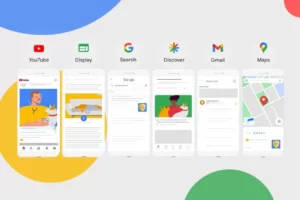Android’s ability to control individual app updates emerges as a crucial differentiator that empowers users to maintain their preferred app experiences. This capability has become particularly valuable for users who find themselves at odds with developers’ design decisions, as demonstrated by the recent controversy surrounding Yahoo’s Fantasy Football app redesign.
The situation perfectly illustrates the growing tension between developer-driven updates and user preferences. When Yahoo rolled out a significant overhaul of its Fantasy Football app prior to the 2024 season, the redesign was met with considerable user dissatisfaction. While iOS users found themselves locked into the new interface with no recourse, Android users discovered a powerful advantage in their platform’s flexibility.
Android’s granular control over app updates offers users two significant options unavailable to their iOS counterparts. First, users can easily roll back to previous versions of apps through trusted sources like APK Mirror. More importantly, Android’s Play Store allows users to pause updates for specific apps indefinitely, ensuring they can maintain their preferred version without losing access to updates for other applications.
This level of control becomes particularly valuable in cases where app redesigns fundamentally alter user experiences. For fantasy football enthusiasts using Yahoo’s app, the ability to maintain the previous version throughout the season ensures consistent team management without disruption from unwanted interface changes. The feature demonstrates Android’s continued commitment to user choice and flexibility, even as mobile operating systems become increasingly restrictive.
The significance of this capability extends beyond just maintaining familiar interfaces. In some cases, app updates can introduce performance issues, remove beloved features, or dramatically change how users interact with essential services. Android’s approach acknowledges that users might have valid reasons for preferring older versions of applications, whether for functionality, familiarity, or performance concerns.
The contrast with iOS’s more rigid update system highlights a fundamental philosophical difference between the two platforms. While Apple’s approach prioritizes uniformity and security through mandatory updates, Android maintains a balance between user autonomy and system integrity. This difference becomes particularly noticeable in scenarios where app developers make controversial design decisions that affect large user bases.
However, this flexibility comes with responsibilities and considerations. Users who choose to pause updates must remain aware of potential security implications and feature improvements they might miss. The ability to maintain older versions of apps should be exercised judiciously, with users weighing the benefits of familiar interfaces against the advantages of new features and security patches.
The Yahoo Fantasy Football app situation serves as a perfect case study for this feature’s value. In competitive scenarios where consistency and familiarity can impact performance, the ability to maintain a stable, known interface throughout a season can be crucial. Android users can focus on managing their teams without adapting to significant interface changes mid-season, while their iOS counterparts must adapt to whatever changes developers implement.
As mobile platforms continue to evolve, the preservation of such user-centric features becomes increasingly important. While iOS and Android share many similarities in their core functionalities, these distinctive capabilities highlight Android’s continued commitment to user choice and customization. The ability to control app updates represents more than just a technical feature; it embodies a philosophy that respects user preferences and acknowledges the diversity of user needs.
Looking forward, the preservation of such user controls could become increasingly significant as apps become more complex and developers continue to implement major redesigns and feature changes. The ability to maintain preferred versions of apps might even influence platform choices for users who prioritize control over their digital experiences.
This situation ultimately underscores a broader discussion about user agency in digital spaces. As smartphones become increasingly central to daily life, the ability to control how and when apps change becomes more than a convenience—it becomes a meaningful expression of user autonomy in an increasingly controlled digital landscape.
















Add Comment